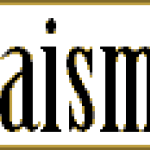- Industry: Religion
- Number of terms: 8235
- Number of blossaries: 0
- Company Profile:
Doubt or uncertainty in a matter of Jewish law. When there is safek in a matter of Torah law, you must be machmir (strict); when there is safek in a matter of rabbinic law, you may be makil (lenient). See The Difference Between Torah Law and Rabbinic Law.
Industry:Religion
Sex is not shameful, sinful or obscene. It is not solely for the purpose of procreation. When sexual desire is satisfied between a husband and wife at the proper time, out of mutual love and desire, sex is a mitzvah. See also Marriage.
Industry:Religion
Lit. The meal of condolence. The first meal that a family eats after the burial of a relative, prepared by a neighbor. See Mourning.
Industry:Religion
Observant Jews pray three times a day in formal worship services. See Jewish Liturgy, Yom Kippur Liturgy, Synagogues, Shuls and Temples.
Industry:Religion
Lit. The Great Sabbath. The sabbath before Pesach (Passover). A special Haftarah reading regarding the End of Days and the return of the prophet Elijah is read.
Industry:Religion
Lit. Commandment. Any of the 613 commandments that Jews are obligated to observe. It can also refer to any Jewish religious obligation, or more generally to any good deed. See Halakhah: Jewish Law; A List of the 613 Mitzvot.
Industry:Religion
The sabbath on which we read Parshat Ha-Chodesh, one of the Four Parshiyot, special Torah readings added to the weekly cycle of readings during the month before Pesach (Passover). Parshat Ha-Chodesh establishes the Hebrew calendar.
Industry:Religion
Lit. Sabbath of Blessing. The Shabbat before Rosh Chodesh (the beginning of the new month) when the prayer leader at services recites a blessing praying that the new month will be a good one.
Industry:Religion
Lit. The Sabbath of Vision. The sabbath before Tisha B'Av, a fast mourning the destruction of the Temple. A special Haftarah reading regarding Isaiah's vision of the Temple's destruction is read.
Industry:Religion
The sabbath on which we read Parshat Parah, one of the Four Parshiyot, special Torah readings added to the weekly cycle of readings during the month before Pesach (Passover). Parshat Parah explains the procedure for the offering of the Red Heifer (Parah Adumah), a ritual of purification.
Industry:Religion
